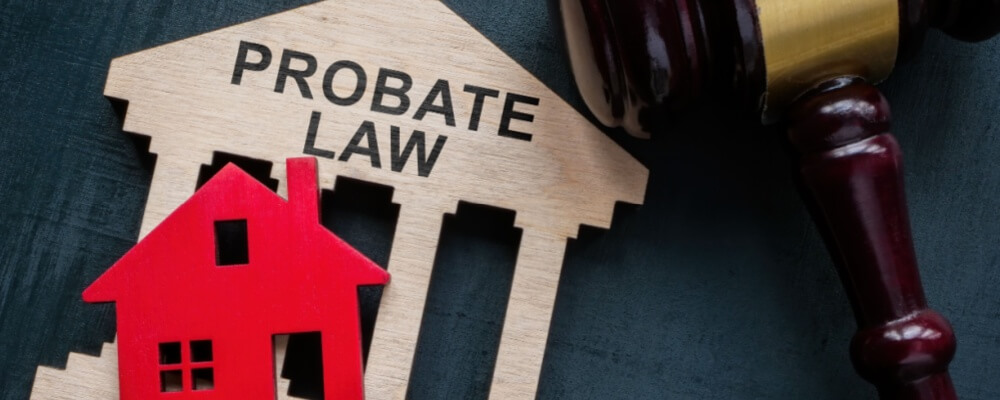 Serving Denton County Since 1992 | 6021 Morriss Rd., Suite 101, Flower Mound, TX, 75028
Serving Denton County Since 1992 | 6021 Morriss Rd., Suite 101, Flower Mound, TX, 75028

Lewisville Probate Lawyer FAQs

Lewisville, Texas Estate Administration Attorney Answers Frequently Asked Questions About Probate
The probate process can be challenging for everyone involved. A deceased person's heirs and other interested parties will want to make sure their loved one's wishes will be followed and that all legal and financial concerns will be properly addressed. Executors, administrators, and beneficiaries may encounter many different questions during this process. To help clarify the complexities of probate and estate administration, Colbert Law Group PLLC has provided some answers to frequently asked questions:
Who Can Serve as an Executor or Estate Administrator?
In Texas, the executor is a person named in a will that the deceased has chosen to manage their estate. If the deceased person did not have a valid will, the probate court will appoint an estate administrator. Generally, an executor or administrator must be at least 18 years old, and they must be capable of performing the required duties. Convicted felons are generally prohibited from serving as estate administrators. Family members, friends, or trusted advisors are often chosen as executors or administrators. However, if no suitable person is available, the court may appoint a professional administrator.
What Is the Difference Between Independent and Dependent Estate Administration?
With independent administration, less court supervision will be required during the probate process. The executor will be able to manage and distribute the estate with minimal court involvement after filing an inventory of the estate's assets or an affidavit in lieu of an inventory. This form of estate administration can help minimize costs and delays, and it may be used if all heirs and beneficiaries agree to it.
Dependent administration is a more formal legal process, requiring extensive court supervision and approval for most actions taken by the executor or administrator. It provides more oversight, which can be beneficial in cases involving complex estates or disputes with beneficiaries and/or creditors. While dependent administration is typically more time-consuming and costly, it may be necessary in some cases.
What Happens if a Person Has No Will?
When a person dies without a will (known as dying intestate), Texas intestacy laws dictate how the estate will be distributed among their heirs. The estate will be divided among the person's surviving relatives. In most cases, the person's surviving spouse and children will receive a share of the estate. If the deceased was unmarried, widowed, or had no surviving children, their parents, siblings, or more distant relatives may be entitled to receive a share of the estate.
What Complications May Arise During the Probate Process?
There are a number of issues that can complicate the administration of an estate, including:
- Disputes among beneficiaries regarding the distribution of assets
- Challenges to the validity of the will
- Difficulties locating or valuing assets
- Unsettled debts or taxes owed by the estate
- Conflicts between beneficiaries and the executor or administrator
These complications can increase costs and lead to extensive delays. The parties involved may need to ensure that they are represented by an attorney so that their rights will be protected throughout the probate process.
Why Might Beneficiaries Dispute a Will?
Beneficiaries may contest a will for several reasons, including:
- Allegations of undue influence, where it is believed that the deceased was coerced into changing their will or creating a new will that benefited certain people
- Claims that the deceased lacked the mental capacity to understand the decisions they were making at the time of the will's creation
- Suspicions of forgery or fraud
Beneficiaries may also raise concerns about the ambiguity of the terms in a will or whether the executor is taking the correct steps to follow the wishes of the deceased person. Disputes can be resolved through mediation or other methods, and in some cases, litigation may be necessary.
How Long Does the Probate Process Take?
The duration of probate can vary depending on the complexity of the estate and the complications that may arise. An independent administration that does not involve complex assets might be completed in a few months, while a dependent administration or contested estate may take a year or more.
Can an Estate Avoid Probate?
Certain assets can bypass probate and be distributed directly to beneficiaries if they are:
- Jointly owned with right of survivorship
- Held in a trust
- Payable-on-death (POD) accounts or transfer-on-death (TOD) deeds
- Life insurance policies or retirement accounts with designated beneficiaries
Planning ahead with these tools can help simplify the estate administration process.
Contact Our Lewisville, TX Probate Attorney
Colbert Law Group PLLC offers comprehensive legal help and representation for executors, administrators, and beneficiaries. We can answer any questions you may have about estate administration, and we can help ensure that a deceased loved one's wishes will be honored. Contact us at 972-724-3338 to schedule a consultation.





